Ditapis dengan
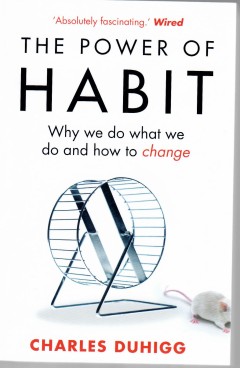
Import The Power of Habit : Why we do what we do and how to change
The Power of Habit explains what an important role habits play in our lives, whether they’re good ones, like brushing our teeth and exercising, or bad ones, like smoking. Filled with research-based findings and engaging anecdotes, The Power of Habit not only explains exactly how habits are formed, it provides easy tips for changing habits, both on an individual and an organizational level.
- Edisi
- First Edition
- ISBN/ISSN
- 9781847946249
- Deskripsi Fisik
- xi,371 hlm
- Judul Seri
- -
- No. Panggil
- BIC 152.33 CHA t c
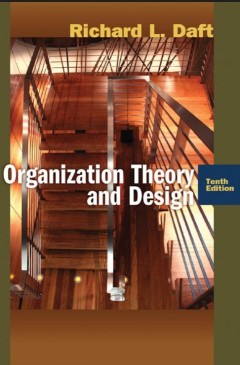
Organization Theory and Design (Tenth Edition)
- Edisi
- 10th Ed.
- ISBN/ISSN
- 978-0-324-59889-6
- Deskripsi Fisik
- 639 hlm
- Judul Seri
- -
- No. Panggil
- EB 302.3 RIC o
- Edisi
- 10th Ed.
- ISBN/ISSN
- 978-0-324-59889-6
- Deskripsi Fisik
- 639 hlm
- Judul Seri
- -
- No. Panggil
- EB 302.3 RIC o
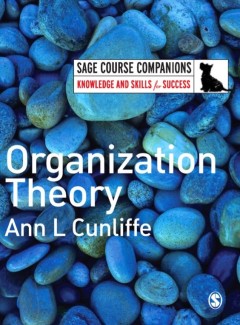
Organization Theory
this book provides a concise summary of the main topics, theories and issues in organization theory (OT). It also provides guidelines on how to make sense of course material, why it is important, and how to apply the theories and concepts to the design and management of organiza- tions. It does not replace your textbook or lectures, which will go into the various aspects of organization th…
- Edisi
- -
- ISBN/ISSN
- 978-1-4129-3549-4
- Deskripsi Fisik
- 174 hlm
- Judul Seri
- -
- No. Panggil
- EB 302.3 ANN o

Explorations in information space: knowledge, actors, and firms
- Edisi
- -
- ISBN/ISSN
- 978–0–19–925087–5
- Deskripsi Fisik
- -
- Judul Seri
- -
- No. Panggil
- EB 658.4’038 MAX e
- Edisi
- -
- ISBN/ISSN
- 978–0–19–925087–5
- Deskripsi Fisik
- -
- Judul Seri
- -
- No. Panggil
- EB 658.4’038 MAX e
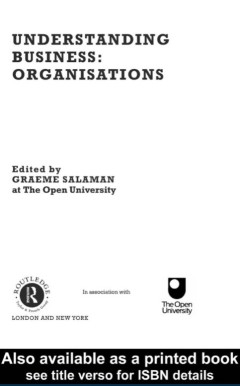
Understanding business organisations
- Edisi
- -
- ISBN/ISSN
- 0-203-99590-2
- Deskripsi Fisik
- -
- Judul Seri
- -
- No. Panggil
- EB 302.3 GRA u
- Edisi
- -
- ISBN/ISSN
- 0-203-99590-2
- Deskripsi Fisik
- -
- Judul Seri
- -
- No. Panggil
- EB 302.3 GRA u

Organizational behavior
Welcome to the fifteenth edition of Organizational Behavior! Long considered the standard for all organizational behavior textbooks, this edition continues its tradition of making current, relevant research come alive for students. While maintaining its hallmark features—clear writing style, cutting-edge content, and engaging pedagogy—the fourteenth edition has been updated to reflect t…
- Edisi
- -
- ISBN/ISSN
- 978-0-13-283487-2
- Deskripsi Fisik
- xxii, 663 hlm
- Judul Seri
- -
- No. Panggil
- EB 658.3 STE o

Organizational Theory, Design and Change : text and cases (Fourth Edition)
- Edisi
- 4th ed.
- ISBN/ISSN
- 0-13-122701-7
- Deskripsi Fisik
- 585 hlm
- Judul Seri
- -
- No. Panggil
- EB 302.3 GAR o
- Edisi
- 4th ed.
- ISBN/ISSN
- 0-13-122701-7
- Deskripsi Fisik
- 585 hlm
- Judul Seri
- -
- No. Panggil
- EB 302.3 GAR o
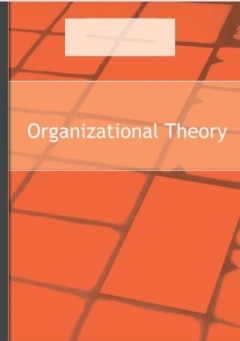
Organizational Theory
- Edisi
- -
- ISBN/ISSN
- 87-7681-169-7
- Deskripsi Fisik
- 111 hlm
- Judul Seri
- -
- No. Panggil
- EB 302.3 JOR o
- Edisi
- -
- ISBN/ISSN
- 87-7681-169-7
- Deskripsi Fisik
- 111 hlm
- Judul Seri
- -
- No. Panggil
- EB 302.3 JOR o
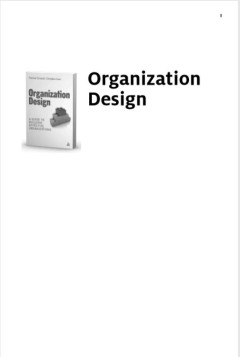
Organization design : a guide to building effective organizations
Organization design, for too many, is a mystery and the results too often a disappointment. Yet, there were many pieces of the jigsaw around, if you know where to look and have the time and energy to do so. What we and our clients have so often needed is a practical process; a robust, broad-based model; and a set of tools that all link together; with a common lexicon that makes organizatio…
- Edisi
- -
- ISBN/ISSN
- 978-0-7494-6255-0
- Deskripsi Fisik
- -
- Judul Seri
- -
- No. Panggil
- EB 658 PAT o

Organization theory : challenges and perspectives
Over the past hundred years or so, Organization Theory has developed into a distinctive social science discipline. It is a body of thinking and writing that describes, explains and influences what goes on in organizations. It provides an underpinning body of knowledge that enables us to explore and develop manage- ment and leadership theory. In recent decades Organization Theory has become …
- Edisi
- -
- ISBN/ISSN
- 978-0-273-68774-0
- Deskripsi Fisik
- xx, 432 hlm
- Judul Seri
- -
- No. Panggil
- EB 302.3 JOH o
 Karya Umum
Karya Umum  Filsafat
Filsafat  Agama
Agama  Ilmu-ilmu Sosial
Ilmu-ilmu Sosial  Bahasa
Bahasa  Ilmu-ilmu Murni
Ilmu-ilmu Murni  Ilmu-ilmu Terapan
Ilmu-ilmu Terapan  Kesenian, Hiburan, dan Olahraga
Kesenian, Hiburan, dan Olahraga  Kesusastraan
Kesusastraan  Geografi dan Sejarah
Geografi dan Sejarah